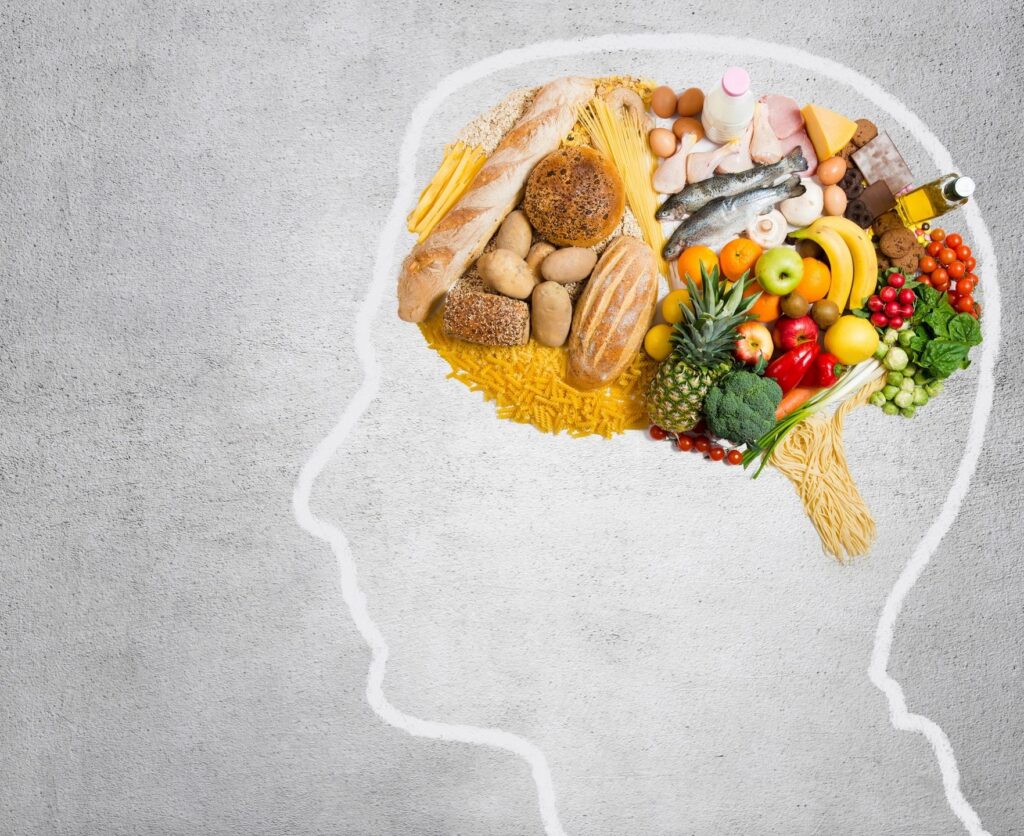
As mental health professionals, we often focus on therapies, medications, and strategies for coping with stress and emotions. But one area that deserves more attention is the connection between what’s happening in our gut and how we feel mentally and emotionally. Research in this area is growing, and the results are fascinating. Let’s explore this connection in plain terms.
What Is the Gut-Brain Connection?
Your gut and brain are in constant communication through something called the gut-brain axis. Think of it like a two-way street. Signals travel back and forth, and the health of one affects the other. The gut is sometimes called the “second brain” because it has its own nervous system, called the enteric nervous system, which helps regulate digestion and communicates with the brain.
A key player in this communication is the vagus nerve, which acts as a direct line between the brain and the gut. What’s more, about 90% of the body’s serotonin — a neurotransmitter that influences mood, sleep, and appetite — is produced in the gut. That’s right, the gut isn’t just about digestion; it’s deeply tied to your mental well-being.
How Nutrition Affects Mental Health
What you eat directly impacts your gut health, which in turn affects your brain. A diet rich in processed foods, sugar, and unhealthy fats can lead to inflammation in the body, including the brain. This inflammation is linked to mental health challenges like depression and anxiety.
On the other hand, a diet rich in whole foods like fruits, vegetables, whole grains, lean proteins, and healthy fats supports a healthy gut. These foods provide essential nutrients, like vitamins, minerals, and fiber, that help maintain a balanced gut microbiome. The microbiome is the community of bacteria and other microorganisms living in your digestive system. A balanced microbiome supports the production of neurotransmitters and reduces inflammation, both of which are crucial for mental health.
The Role of the Microbiome
The gut microbiome plays a starring role in the gut-brain connection. It’s home to trillions of bacteria that help break down food, produce vitamins, and protect against harmful pathogens. But the microbiome does much more than that. It also produces compounds that affect brain function, including short-chain fatty acids and neurotransmitter precursors.
When the microbiome is out of balance — a state called dysbiosis — it can lead to problems like leaky gut syndrome, where the lining of the gut becomes permeable and allows toxins to enter the bloodstream. This can contribute to systemic inflammation and even impact the brain, potentially increasing the risk of mental health issues.
Practical Steps for Better Gut and Mental Health
- Eat a Variety of Whole Foods: Include plenty of fruits, vegetables, whole grains, lean proteins, and healthy fats in your diet. These foods provide the nutrients and fiber your gut needs to thrive.
- Incorporate Fermented Foods: Foods like yogurt, kefir, sauerkraut, kimchi, and miso contain probiotics, which are beneficial bacteria that support a healthy microbiome.
- Consider Prebiotics: Prebiotics are types of fiber that feed the good bacteria in your gut. You’ll find them in foods like bananas, onions, garlic, asparagus, and oats.
- Limit Processed Foods and Sugar: These can disrupt the balance of your gut microbiome and contribute to inflammation.
- Stay Hydrated: Water helps with digestion and supports the gut lining.
- Manage Stress: Chronic stress can negatively impact gut health. Practices like mindfulness, yoga, and regular exercise can help.
- Seek Professional Help: If you suspect gut health issues are affecting your mental health, consult a healthcare provider. They can help identify and address underlying problems.
How Reflective Soul Therapy & Wellness Can Help
At Reflective Soul Therapy & Wellness, we understand that mental and physical wellness go hand in hand. Our team of Mental Health Counsellors, along with our dedicated Nutrition Coach and Personal Trainer, can help you work toward improved overall wellness. Whether it’s addressing the connection between your gut health and mental health, creating a personalized nutrition plan, or developing a fitness routine that works for you, we’re here to support you every step of the way.
The Bigger Picture
Understanding the link between gut health, nutrition, and mental health reminds us that our bodies and minds are deeply interconnected. While therapy and medication are essential tools for mental health care, considering lifestyle factors like diet and gut health can complement these approaches and lead to more holistic well-being.
If you’re struggling with mental health issues, know that you’re not alone. Small changes in your diet and lifestyle can make a big difference over time. And remember, support is always available — whether it’s from a therapist, dietitian, or another healthcare professional. Reflective Soul Therapy & Wellness is here to help you take those steps toward a healthier, more balanced life.
Reach out to us today:
- Website: www.reflectivesoulwellness.com
- Phone: 250-300-6215
- Email: Intake@ReflectiveSoulWellness.com
- Booking site: https://reflectivesoulcounselling.janeapp.com



